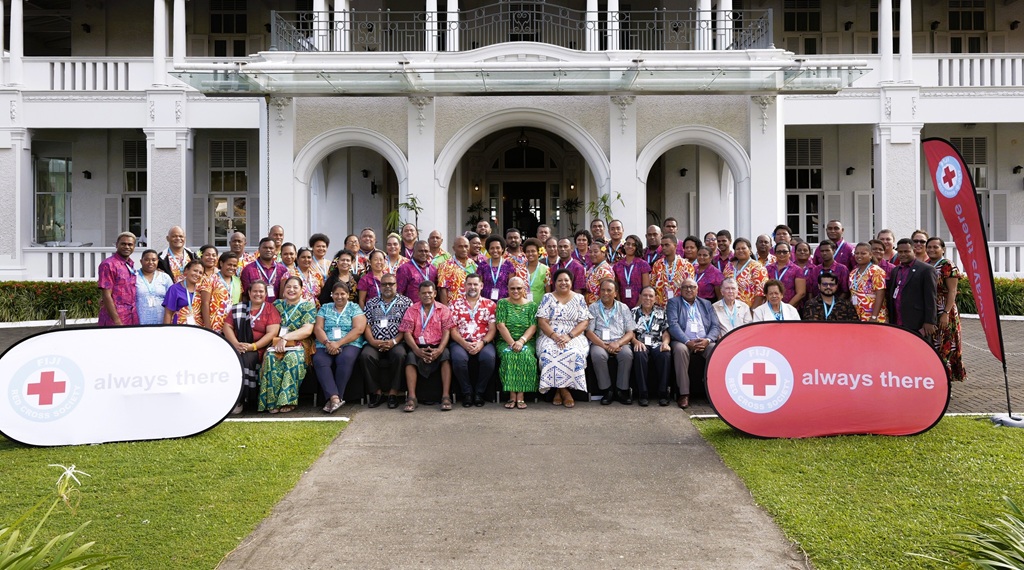Volunteerism is often spoken of in warm, human terms — “giving of time,” “serve the community,” “help your neighbour.”
What we seldom emphasise, however, is just how substantial the contribution of volunteers really is, in monetary terms, and how diverse the roles truly are. In that light, I want to reflect on the immense value our volunteers bring to our society and how they come in many shapes, skills, and capacities.
According to a landmark study by the International Federation of Red Cross and Red Crescent Societies (IFRC), the global network of volunteers in the Red Cross/Red Crescent Movement donated services valued at $US5.9 billion in 2009 alone. To put that in perspective: that equates to roughly 90 cents of value for every person on the planet.
That means, if we were to pay salaries instead of rely on volunteers, the cost would be enormous. The value is not simply symbolic. Volunteers extend the capacity of their National Societies in ways that would require huge budgets if they were paid staff.
What this means for us locally is profound: every hour given, every skill offered, every meeting attended, or governance discussion joined — it adds up. When our branches call on volunteers, we are tapping not only goodwill but a mode of delivery that would easily carry a six- or seven-figure price tag if outsourced or employed.
We often imagine volunteers in the field: disaster relief, first aid, flying into remote communities, handing out food or supplies. And certainly, that remains vital. But our volunteers are far more than the people you see in vests or boots.
They are the people in boardrooms, the voices on committees, the guardians of governance, risk, and strategy.
In our National Society, volunteers bring an astonishing spectrum of expertise. They’re the minds behind strategy, finance, audit, and youth development. From banking professionals to public-sector executives, from youth leaders to retired dignitaries — this diversity is our strength.
Take governance, for example: our national board does not operate in a vacuum. It is supported by commissions and expert volunteers. The Finance, Audit & Risk Commission (FAR) is a case in point. Thanks to the longstanding leadership of Digby Bossley, this body has helped protect our national society from risk and fraud, reinforcing the trust placed in us. His volunteer commitment — though unseen to many — is indispensable.
And then there are our honorary members — those whose service has spanned years and whose names are familiar to many in our community: Paul Jaduram, Adi Davila Toganivalu, Ratu Epeli Nailatikau, Robin Yarrow — and Nitin Gandhi, who also serves on the Commission on Governance and Oversight on the IFRC Governing in Geneva. These people exemplify how volunteering isn’t just helping in the field — it is shaping direction, upholding values, steering the future.
Our skill-diverse volunteers bring a depth of expertise that strengthens every layer of our National Society.
Those with senior-level experience in governance and oversight ensure that we remain accountable, transparent, and strategic — asking the hard questions and keeping us aligned with our humanitarian principles. In the areas of risk and finance, volunteers with backgrounds in banking, auditing, and risk management safeguard our operations, protecting both our resources and reputation.
From the grassroots, our youth and community leaders infuse energy, innovation, and relevance, ensuring our work reflects the realities faced by communities. Meanwhile, volunteers with technical and specialised skills — ranging from communications and law to public health, IT, and logistics — contribute essential insights and professional expertise that enrich our humanitarian mission beyond the traditional scope of relief work.
We also recognise the extraordinary contributions of several professional volunteers. Honorary member Sashi Singh ensures that packages and essential supplies reach communities across Fiji, providing vital support to our operations.
Mr Eldon Eastgate dedicates his time mentoring and coaching our senior management team, strengthening leadership and strategic decision-making from within. And Mr Daniel Cowley of the Lautoka Branch, always maintaining a low profile, gives his all to support his Branch and other volunteers, playing an integral role in the development of our Red Cross Strategic Plan 2022–2026 and also in the induction of our national Board members.
Their service demonstrates that professional volunteering extends beyond direct fieldwork — it builds capacity, enhances operations, and amplifies the impact of our National Society.
When you link the economic scale of volunteer contribution with the breadth of these roles, something becomes clear: our volunteers are not optional extras. They are integral to everything we do. The six-to-nine-figure “value” figure from the IFRC shows this, but even more so, the fact that volunteers are embedded at the highest levels of our governance and operations shows how central they are.
Our volunteers build capacity that paid staff could never replicate alone — because they bring local knowledge, long-term commitment, oversight, and a willingness to serve beyond a job description.
And so, as we gather at the Red Cross Ball this year — beneath the chandeliers, amid music and conversation — it is worth remembering what we are truly celebrating. Beyond the glamour, this night honours the quiet power that drives our movement: the countless hours, expertise, and compassion of our volunteers.
Each ticket sold, each sponsor acknowledged, and each story shared on that evening carries a deeper purpose — to sustain the spirit of service that no currency can measure. The Ball is not just an event; it is a reflection of our collective gratitude for those who give freely, lead wisely, and serve selflessly.
It reminds us that the true worth of our volunteers cannot be found in numbers alone — it lives in the strength of our National Society, in the trust of the communities we serve, and in the enduring heartbeat of humanity that binds us all.



